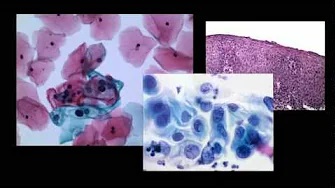Document Type
Article
Publication Date
1-28-2020
Abstract
Clostridioides difficile is the leading cause of diarrhea in hospitalized U.S. patients and results in over 400,000 cases of C. difficile infection per year. C. difficile infections have mortality rates of 6 to 30% and significantly increase health care costs, because of increased length of stay and increased frequency of readmissions due to recurrences. Efforts to reduce the spread of C. difficile in hospitals have led to the development of rapid sensitive diagnostic methods. A multicenter study was performed to establish the performance characteristics of the Revogene C. difficile test (Meridian Bioscience, Cincinnati, OH, USA) for use in detection of the toxin B (tcdB) gene from toxigenic C. difficile The Revogene instrument is a new molecular platform that uses real-time PCR to detect nucleic acids in up to 8 specimens at a time. A total of 2,461 specimens from symptomatic patients that had been submitted for C. difficile testing were enrolled at 7 sites throughout the United States and Canada for evaluation of the assay. Each stool specimen was tested for the presence of the tcdB gene using the Revogene C. difficile test, and results were compared with those of the reference method, a combination of direct and enriched culture methods. Overall, the Revogene C. difficile test demonstrated a sensitivity of 85.0% (95% confidence interval, 80% to 88%) and a specificity of 97.2% (95% confidence interval, 96% to 98%). The Revogene C. difficile test, using clinical stool specimens for detection of tcdB in C. difficile, demonstrated acceptable sensitivity and specificity, with a short turnaround time.
Recommended Citation
Mashock MJ, Faron ML, Carroll KC, Dang C, Lewis S, Salimnia H, Lephart P, Loo VG, Schmitt BH, Young S, Buchan BW, Ledeboer NA. A Multicenter Study of the Revogene C. difficile System for Detection of the Toxin B Gene from Unformed Stool Specimens. J Clin Microbiol. 2020 Jan 28;58(2):e01510-19. doi: 10.1128/JCM.01510-19. PMID: 31776191; PMCID: PMC6989061.

